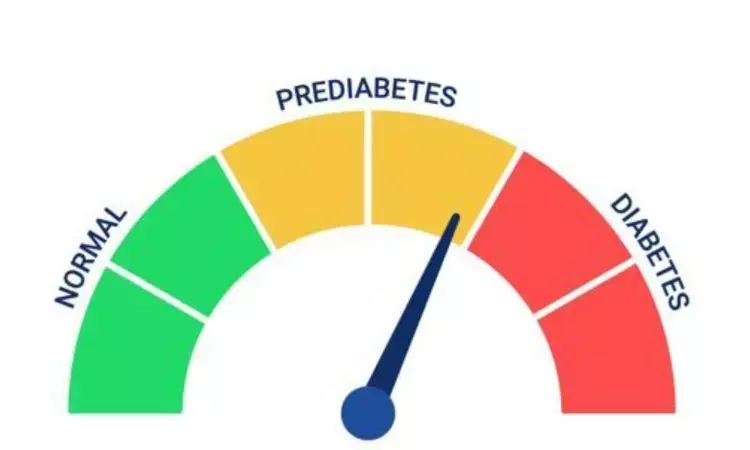- Home
- Medical news & Guidelines
- Anesthesiology
- Cardiology and CTVS
- Critical Care
- Dentistry
- Dermatology
- Diabetes and Endocrinology
- ENT
- Gastroenterology
- Medicine
- Nephrology
- Neurology
- Obstretics-Gynaecology
- Oncology
- Ophthalmology
- Orthopaedics
- Pediatrics-Neonatology
- Psychiatry
- Pulmonology
- Radiology
- Surgery
- Urology
- Laboratory Medicine
- Diet
- Nursing
- Paramedical
- Physiotherapy
- Health news
- Fact Check
- Bone Health Fact Check
- Brain Health Fact Check
- Cancer Related Fact Check
- Child Care Fact Check
- Dental and oral health fact check
- Diabetes and metabolic health fact check
- Diet and Nutrition Fact Check
- Eye and ENT Care Fact Check
- Fitness fact check
- Gut health fact check
- Heart health fact check
- Kidney health fact check
- Medical education fact check
- Men's health fact check
- Respiratory fact check
- Skin and hair care fact check
- Vaccine and Immunization fact check
- Women's health fact check
- AYUSH
- State News
- Andaman and Nicobar Islands
- Andhra Pradesh
- Arunachal Pradesh
- Assam
- Bihar
- Chandigarh
- Chattisgarh
- Dadra and Nagar Haveli
- Daman and Diu
- Delhi
- Goa
- Gujarat
- Haryana
- Himachal Pradesh
- Jammu & Kashmir
- Jharkhand
- Karnataka
- Kerala
- Ladakh
- Lakshadweep
- Madhya Pradesh
- Maharashtra
- Manipur
- Meghalaya
- Mizoram
- Nagaland
- Odisha
- Puducherry
- Punjab
- Rajasthan
- Sikkim
- Tamil Nadu
- Telangana
- Tripura
- Uttar Pradesh
- Uttrakhand
- West Bengal
- Medical Education
- Industry
Prediabetes Linked to Increased Risk of Pancreatic Cancer, finds research

Researchers have found that people with prediabetes are 40% more likely to develop pancreatic cancer as compared to those whose blood glucose levels are within the normal range. Prediabetes is when one's blood glucose levels are higher than normal but not yet in the diabetic range. A recent study was published in the journal Pancreas by Jain A. and colleagues.
Pancreatic cancer is one of the deadliest cancers worldwide, with few early diagnostic methods and poor survival rates. It would be significant to understand modifiable risk factors like prediabetes so intervention and early prevention could actually be implemented in patients. Evidence from hundreds of studies regarding a number of association studies of prediabetes and pancreatic cancer risk were somewhat inconsistent. The research objective was to assess the total risk of pancreatic cancer among people with prediabetes and to explore how age and geography modify this risk.
The researchers conducted a broad literature search of key medical databases over the last decade, concentrating on studies that investigated the relationship between prediabetes and pancreatic cancer. The meta-analysis included five studies that combined an impressive number of 5,425,111 individuals with prediabetes and 16,096,467 normoglycemic individuals from five different countries. The median follow-up time was 8.5 years to allow the researchers to observe cancer development over the long term. The overall effect size for the general measures of risk was estimated by combining the pooled odds ratio (OR) and hazard ratio (HR).
• The meta-analysis revealed a significant association of prediabetes with a higher risk of pancreatic cancer:
• The unadjusted effect size for prediabetes was 1.36 (95% CI 1.05–1.77, P = 0.02), indicating a 36% risk of pancreatic cancer in patients with prediabetes compared to normal glucose levels.
• The adjusted effect size further consolidated this association to a further 1.40 (95% CI 1.23–1.59, P < 0.01), translating to a 40% increased risk after adjusting for other variables.
• Subgroup analyses revealed significant heterogeneity by age and geographically:
• Studies in patients older than 60 years of age presented an even higher risk, having an ES of 1.83 (95% CI 1.28–2.62, P < 0.01), pointing to the fact that prediabetes in elderly individuals carries a predisposition to pancreatic cancer.
• Geographical variations were equally amazing. The effect size in studies conducted in Japan was 1.89, 95% CI 1.15–3.10, P < 0.01. This meant there was a higher risk compared to the studies conducted in the USA, with a reported effect size of 1.32, (95% CI 1.13–1.53, P < 0.01).
This meta-analysis points out that prediabetes is associated with 40% increased risk of pancreatic cancer, and thus, it is worthy of urgent attention in research, clinical practice, and policy changes of public health. The patients with prediabetes, particularly those aged 60 years or older, should be considered at increased risk of pancreatic cancer; further research is needed to outline the mechanisms and define effective prevention of these cancerous diseases. Thus, early detection and risk assessment play a principal role in preventing or at least mitigating the effects of pancreatic cancer on the health of the public who are suffering from prediabetes.
Reference:
Jain, A., Keesari, P. R., Pulakurthi, Y. S., Katamreddy, R., Dhar, M., & Desai, R. (2024). Pancreatic cancer risk in prediabetes: A systematic meta-analysis approach. Pancreas, 10.1097/MPA.0000000000002391. https://doi.org/10.1097/mpa.0000000000002391
Dr Riya Dave has completed dentistry from Gujarat University in 2022. She is a dentist and accomplished medical and scientific writer known for her commitment to bridging the gap between clinical expertise and accessible healthcare information. She has been actively involved in writing blogs related to health and wellness.
Dr Kamal Kant Kohli-MBBS, DTCD- a chest specialist with more than 30 years of practice and a flair for writing clinical articles, Dr Kamal Kant Kohli joined Medical Dialogues as a Chief Editor of Medical News. Besides writing articles, as an editor, he proofreads and verifies all the medical content published on Medical Dialogues including those coming from journals, studies,medical conferences,guidelines etc. Email: drkohli@medicaldialogues.in. Contact no. 011-43720751


